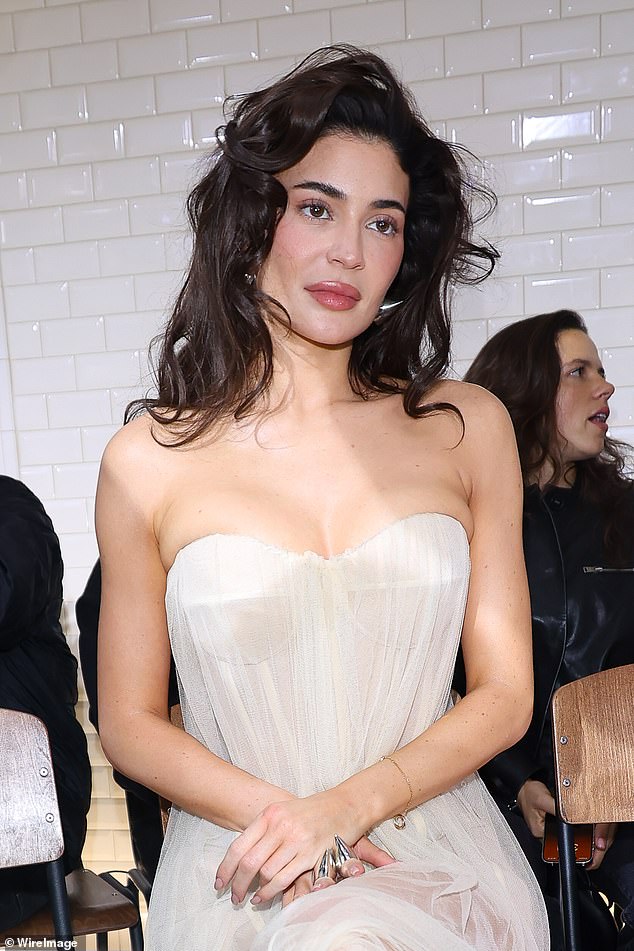Table of Contents
Struggling to access the housing market, crippled by student debt, and now Gen Z has another problem to add to their list of woes: They’re worried they’re aging faster than previous generations.
On the video-sharing platform TikTok, both men and women in their 20s and 30s are complaining about being mistaken for people in their 30s. A video about the phenomenon, made by Jordan Howlett, 26, has received 24 million views.
Even Gen Z celebrities seem to be aging at an accelerated rate. Kylie Jenner, the youngest member of the Kardashian family, who admitted to having lip filler injected at 17, faced cruel comments at Paris Fashion Week for looking “in her 40s” when she is actually 27.
And some experts say there may be a grain of truth to these observations.
A video about the phenomenon, made by Jordan Howlett, 26, has received 24 million views.
“From a scientific standpoint, although Gen Z is not aging faster than previous generations, certain lifestyle choices can make them look older than their biological age,” explains dermatology expert and aesthetic physician Dr. Sonia Khorana.
According to Dr. Khorana, today’s twenty-somethings are more likely to alter their appearance with cosmetic procedures than any previous generation, which can make them look older.
An estimated 41,000 Botox-style procedures were performed on under-18s in England in 2020, prompting the government to ban minors from undergoing the treatments.
But it’s not just cosmetic treatments that could be causing today’s youth to age prematurely: everything from stress to skin care could also play a role.
So is this anxiety-ridden age group worrying over nothing, or could they actually be aging faster?

Kylie Jenner, 27, faced cruel comments at Paris Fashion Week for looking “40 years old”
HARD SKIN CARE
Exposed to aggressive wellness marketing and alluring online beauty influencers, many teens and twentysomethings have complicated, multi-step skincare routines.
The irony is that while they aim to prevent signs of aging, in fact, this early experimentation with powerful active ingredients such as retinol and chemical exfoliants, which are not suitable for young skin, can cause dryness that makes the skin look more mature.
And according to recent research, Gen Z (those aged 12-27) spend more on beauty and skincare than any other group – around £466 per year.
“There is social pressure to try the products that influencers promote on social media, but they are often not suitable for under-30s,” explains Dr Khorana.
Using retinol on young skin can also damage the skin barrier and cause irritation, even triggering conditions such as dermatitis.
Dr. Khorana’s advice? Always use sunscreen, the best anti-aging product on the market. People in their 20s and 30s can start using retinoids if they want to combat fine lines, but younger people should stick to cleansing and moisturizing.
FACE FILLER
Most of us can look at photos of ourselves when we were 20 and think we looked wonderfully “baby-faced.” But now, nearly 60 percent of 18- to 24-year-olds feel pressure to change their appearance, meaning they are more likely to seek out cosmetic procedures like dermal fillers.
“Dermal fillers are great for adding volume to the face, but too much filler can have the opposite effect, making you look older due to the shadows it can create on the face,” explains GP and aesthetician Dr Ahmed El Muntasar (theaestheticsdoctor.com).
Trying to emulate the looks of millennial celebrities could also contribute to Gen Z looking older than their years.
It’s disturbing that some aestheticians sell touch-up packages designed to make their clients look more like a particular celebrity, such as Kim Kardashian. But Kardashian is over 40, so a young woman who buys such a package is actually paying to look older.
Another risk of injections is “misperception,” a domino effect that can occur when young people “fix” one problem with a touch-up, but then begin to obsess about another part of their body and feel they need more and more procedures.
SKIPPING KEY FOODS
Veganism, juice cleanses and high-protein diets are extremely popular among the abstinent Gen Z.
Research shows that more than a quarter are vegan or vegetarian, compared to 14 percent of Gen Xers (ages 44 to 59) and 12 percent of Baby Boomers (ages 60 to 78). But cutting out certain food groups can have a negative impact not only on overall health, but also on appearance.
“Depriving the body of certain nutrients and minerals, for example by cutting out carbohydrates or not eating enough protein, can lead to imbalances that can cause the distribution of fat in the face to change,” explains Dr. El Muntasar. “When you lose the fat pads in your face, you essentially lose the facial scaffolding, which can make your face look sunken and significantly aged.”
ADORATION OF CABINS
For older people, who are well aware of the health risks, it is surprising that 43 percent of Gen Z admit to using tanning beds. Yet this dangerous trend is all over social media.
“On TikTok, tanning salon visits have become a genre of content in their own right. This normalizes the idea of being exposed to UV rays, which is of course very harmful,” says Dr. Khorana (@dermgp).
In addition to significantly increasing the risk of skin cancer, tanning bed use contributes to skin aging due to the powerful UVA rays they emit.
But while the full visible effects of sun damage can take 20 years to appear, malignant melanoma (a skin cancer linked to UVA damage) is the most common form of cancer diagnosed in women in their twenties.
Taking hits from vaporizers
A recent study by University College London found that the number of 18-24 year-olds in England inhaling nicotine products has risen from 28 per cent to 35 per cent since 2021 – a higher proportion than any other age group.
“Nicotine vapes can cause premature aging, as nicotine causes collagen in the skin to break down. In some cases, vaping can be almost as harmful as smoking cigarettes,” says Dr. El Muntasar.
Since vaping is a relatively new phenomenon, its long-term impact is unclear, but the repeated motion of sucking on a vape pen over time, like smoking cigarettes, could also cause smoker’s lines (deep, defined wrinkles) around the mouth in adulthood.
Recommends young people switch to a nicotine-free vape as a first step to quitting smoking.
STRESSED
Today’s young people report feeling more stressed and anxious than any previous generation. According to a survey of 12,000 workers last year, Gen Z is the most stressed demographic in the workplace, with 98 percent of them reporting symptoms of burnout.
Dr. El Muntasar says this can make you look older, as the stress hormone cortisol can cause a breakdown of collagen and elastin in the skin. High levels of stress can also lead to temporary hair loss or thinning, by causing hormonal imbalances that can disrupt the natural hair growth cycle, leading to premature hair loss.
(tags to translate)dailymail

